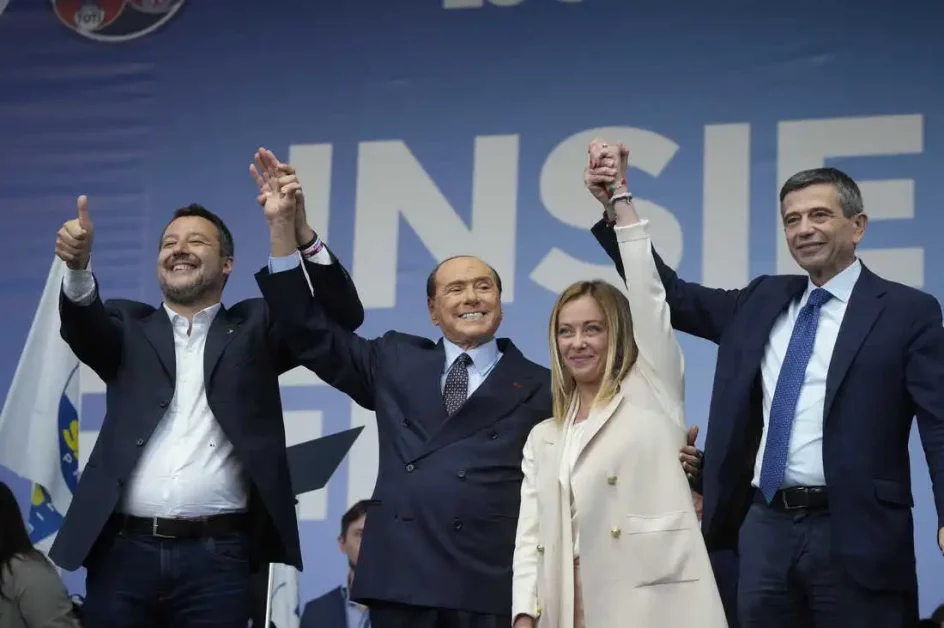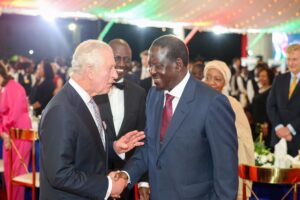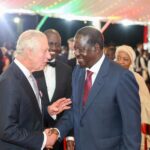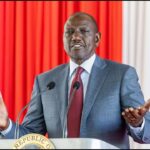Giorgia Meloni of the Eurosceptic Populist Party wins in the Italy’s general elections that happened Sunday, 25, September, downing her opponent Mussolini.
Italians participated in the national elections which took a turn to the far-right, as the Brothers of Italy party scooped the majority of votes, downing Mussolini became the first woman to lead the country.
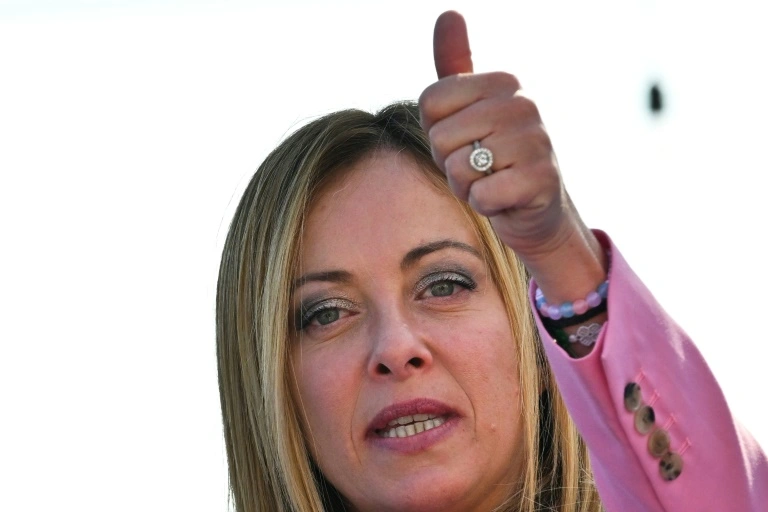
Meloni’s win comes after the collapse of two governments since the last election, the fall of former Prime Minister Mario Draghi’s coalition earlier this year triggered the snap election.
Brothers of Italy have only surged in popularity, as the recent polling suggests nearly a quarter of the electorate backs Meloni.
Her ultra-conservative party, whose origins lie in post-war fascism, currently controls just two of Italy’s 20 regions, having won up to 4.5% of the vote in the 2018 elections.
Italy took a sharp turn to the right on Monday after Giorgia Meloni of the Eurosceptic Populist Party swept to victory in the general elections, outing Mussolini.
Meloni’s Brothers of Italy party, which has neo-fascist roots, won around 26 percent of the vote in Sunday’s election, while her wider coalition secured a clear majority in parliament.
With former premier Silvio Berlusconi and Matteo Salvini’s far-right League, they will now begin forming the most right-wing government since World War II, a process likely to take weeks.
Meloni’s success represents a seismic change in Italy, a founding member of the European Union and the Eurozone’s third-largest economy, just weeks after the far-right performed strongly in Sweden’s elections.
Meloni used her first public statement to emphasize unity, saying she would govern ‘for all Italians’.
The 45-year-old, whose party has never held office, has huge challenges ahead, from soaring inflation to a materializing energy crisis and the war in Ukraine.
Proud free Europe
Congratulations streamed in from the European nationalist allies, like the Polish Prime Minister Mateusz Morawiecki and Spain’s far-right party Vox.
“Meloni has shown the way for a proud, free Europe of sovereign nations,” Vox leader Santiago Abascal tweeted.
But Spanish Foreign Minister Jose Manuel Albares warned that Populist movements always grow, but end in the same way in catastrophe.
A spokesman for the European Commission said it hoped for constructive cooperation with the new government, a line echoed by the Kremlin.
“We are eager to work with Italy’s government on our shared goals: supporting a free and independent Ukraine, respecting human rights, and building a sustainable economic future,” US Secretary of State Antony Blinken said.
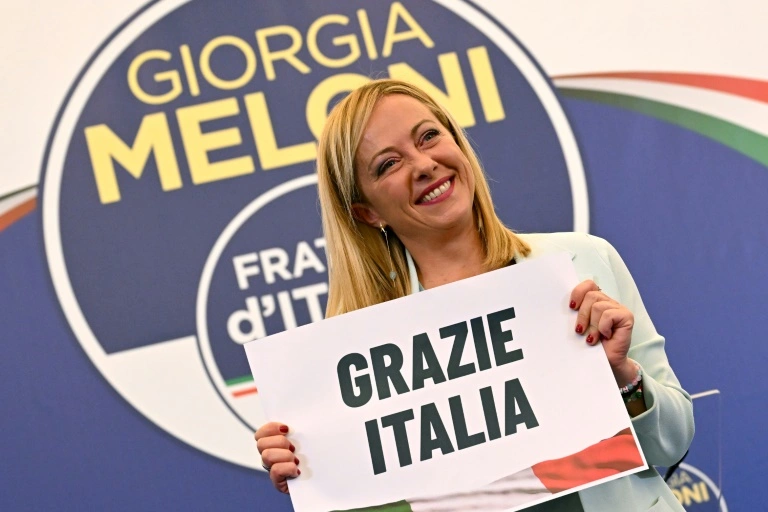
“Italy is a very Europe-friendly country with very Europe-friendly citizens and we assume that won’t change,” added a spokesman for German Chancellor Olaf Scholz.
New British Prime Minister Liz Truss on Monday tweeted,
“Congratulations to Georgia Meloni… for supporting Ukraine to addressing global economic challenges, the UK and Italy are close allies.”
Meloni and Salvini are strongly Eurosceptic, although they no longer want Italy to leave the eurozone.
The Brothers of Italy head says Rome must assert its interests more and has policies that look set to challenge Brussels on everything from public spending rules to mass migration.
Her coalition also wants to renegotiate Italy’s part of the EU’s post-pandemic recovery fund, arguing the almost 200 billion euros ($193 billion) it expects to receive should take into account the energy crisis.
But the funds are tied to a series of reforms only just begun by outgoing Prime Minister Mario Draghi, and analysts say she has limited room for maneuver.
Meloni campaigned on a platform of “God, country, and family”, sparking fears of regression on rights in the Catholic-majority country.
Berlusconi struck a Europe-friendly note, pledging the new government would maintain a ‘European profile’ and adding that ‘good relations with our historic allies and the big countries of the EU are essential for Italy’s future’.
Meloni had been leading opinion polls since snap elections were called in July after Draghi’s government collapsed.
Hers was the only party not to join Draghi’s national unity coalition in February 2021, making her effectively the sole opposition leader.
‘I’m playing to win, not just to take part,’ said Matteo Salvini, head of the far-right League
Salvini highlighted this as he rued his League party’s poor performance, which at around nine percent is almost half that of its 17-percent showing in 2018.
However, he said he would play his part in the new government, which he hoped could go for at least five years straight.
Turnout fell to a historic low of around 64 percent, and some Italians were optimistic about the result, viewing it as yet another chapter in the country’s infamous instability.
“I’m not too pessimistic because Italians, in problematic situations, always find a solution,” noted Fabrizio Sabelli, out and about in Rome on Monday morning.
Meloni has distanced herself from her party’s neo-fascist past and her own, after praising dictator Benito Mussolini as a teenager and presented herself as a straight-talking but unthreatening leader.
“Her challenge will be to turn this electoral success into a governing leadership… that can last,” Lorenzo De Sio, head of Italian electoral studies center CISE, told AFP.
Italian politics is notoriously unstable, with nearly 70 governments since 1946, and Meloni, Salvini, and Berlusconi do not always agree.
Salvini will have a more marginal role than he wants in the formation of a new government, said Sofia Ventura, a professor of political science at the University of Bologna.
Independent Ukraine
The coalition partners have a joint program for government, including tax cuts and promises to stop mass migration.
While Meloni strongly supports the EU’s sanctions against Russia over Ukraine, Salvini has criticized them as ineffective.
Meanwhile, Berlusconi the Billionaire media mogul, whose Forza Italia party won around eight percent of the vote, has long been friends with Russian President Vladimir Putin.
Democratic Party chief Enrico Letta effectively quit after his center-left formation did worse than expected at 19 percent.
Subscribe to our You Tube channel at Switch TV.
Letta, a former premier who had repeatedly warned Meloni was a danger to democracy, said he would not be a candidate in an upcoming leadership contest.


